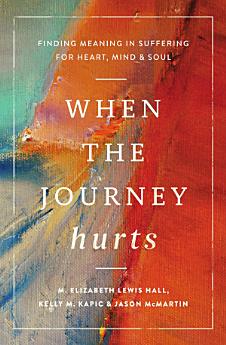When the Journey Hurts: Finding Meaning in Suffering for Heart, Mind, and Soul
About this ebook
We don’t like pain.
So, we find creative ways to go around it. We try to ignore, minimize, or deny our suffering, but we're still left hurting. The twisting and defiling work of sin on this world is overwhelming and shatters our assumptions about ourselves and our place in the world. And yet, the path forward is through suffering. Our afflictions present an opportunity to encounter God and allow him to redeem our suffering.
Drawing on six years of research, When the Journey Hurts untangles common misconceptions about suffering, instead helping you find meaning in it. The authors integrate theology, psychology, and spiritual formation to provide actionable steps and tools that teach you how to suffer well in relationship with God and others.
This book introduces seven key practices to help you uncover meaning in your suffering, equipping you to engage with suffering in a healthy, faithful way:
- Identifying with Christ's suffering
- Lament
- Surrender
- Forgiveness
- Gratitude
- Memento mori (remembering our mortality)
- Weaving our story of suffering into God's story
These practices are supported by both theological insights and psychological research, providing a unique approach to navigating suffering. Rather than diminishing the weight of your pain, this book is designed to help you transform suffering into an opportunity for spiritual growth and deeper connection with God. With When the Journey Hurts, you'll find that your pain can lead you closer to Jesus.
About the author
Jason McMartin is professor of theology at Biola University. He has served as an urban missionary and also as a bi-vocational pastor.
Dr. Liz Hall is professor of psychology at Rosemead School of Psychology, Biola University, in La Mirada, California. For the past decade, she has led a team exploring the resources Christianity offers during difficult times. She coauthored Relational Spirituality with her husband, Todd, and has published over 150 academic works.
Kelly M. Kapic is a professor of theological studies at Covenant College in Lookout Mountain, Georgia. Kapic has also worked on research teams funded by the John Templeton Foundation. He is an author or editor of more than fifteen books, including the award-winning titles You're Only Human and Embodied Hope, and an active speaker.







